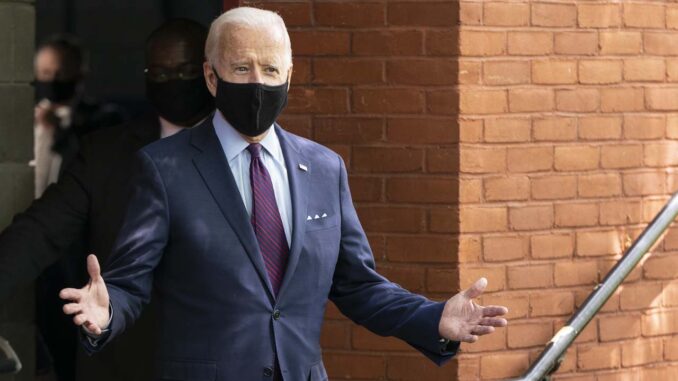
The inauguration of the Biden administration has generated much global interest. Its implications for Africa are highly anticipated. It helps, therefore, to examine United States’ current national context, the views of its leaders on Africa, and the recent history of Africa-United States relations. The Biden administration has come to power at one of the most fraught national moments in recent U.S. history. The US has an exploding COVID-19 crisis accounting for about 20 percent of global COVID-19 deaths and 25 percent of all COVID-19 infections. The resulting impact on unemployment and income inequality has been devastating. The U.S. recently witnessed a mob attack on the Congress, one of the major pillars of its constitutional democracy. There is also the issue of racial injustice that the new administration must grapple with.
This combination of domestic challenges could adversely impact US disposition toward Africa, but will not constrain its commitment to reassert its global leadership role. Indeed, as a presidential candidate, Biden made it clear, in his article published in the March/April 2020 edition of Foreign Affairs, that the U.S. “will rebuild confidence in our leadership, and mobilise our country and allies to rapidly meet new challenges.” Among those challenges, he listed strengthening democracy around the world, with particular focus on three priorities: fighting corruption; defending against authoritarianism; and advancing human rights. He also indicated that the US will “need to do more to integrate our friends in Latin America and Africa into the broader network of democracies and to seize opportunities for cooperation in those regions.” These concerns were echoed by Antony Blinken, Secretary of State-designate, and members of the U.S. Senate Foreign Relations Committee during Blinken’s recent confirmation hearings. In addition, some members of the Committee expressed deep concern about the backsliding on democracy in Uganda and Ethiopia and the deterioratingpolitical situation in Cameroon.
Lessons from history provide some useful guide on what African countries can expect from the Biden administration. In the last quarter century, United States policy towards Africa has centered on three main policy areas: conflict management, including combating terrorism; economic assistance through a variety of instruments; and humanitarian medical support. To help combat terrorism in Africa, U.S. deployed military assets in the region, including in Somalia and a few Sahel countries wracked by terrorist violence. Three important economic initiatives have stood out: the enactment of Africa Growth and Opportunity Act (AGOA) in 2000, which offered improved market access for African exports into USA; Millennium Challenge Account (MCA) aimed at helping countries that perform well on governance; and U.S. Power Initiative aimed at doubling electricity for Sub-Saharan Africa, supported by U.S. government and private sector contribution. The humanitarian medical initiatives consisted of the President’s Emergency Plan for AIDS Relief (PEPFAR), of which many African countries were major beneficiaries, and the United States dispatched a huge contingent of troops, policy experts and health officials to Liberia, Sierra Leone and Guinea to support these countries’ response efforts on Ebola disease.
The past is often a prologue to the future. Africa faces a combination of persisting challenges from the past and a daunting array of new problems. The consolidation of democracy in Africa identified by President Biden in his Foreign Affairs article is a prime example of a persisting challenge. The mob attack on the Congress will likely make a few political leaders in Africa to question the moral authority of the Biden administration to “lecture” Africa on the virtues of democracy. They would be wrong because, as Biden said in his inaugural address, “democracy prevailed.” The lesson from that experience should inform U.S. democracy initiatives in Africa to strengthen institutional resilience to better respond to challenges to democratic constitutional order, in addition to advancing the cause of the human rights of the citizens. But a United States policy towards Africa that focuses predominantly on democracy will elicit derision by segments of the elite and dissatisfaction by citizens who long for improvements in their livelihoods.
Africa’s needs are varied and huge. Hence, U.S. support for Africa should transcend the promotion democracy, and include actions on a range of economic-related issues, in particular support for Africa Continental Free Trade Area; renewal of AGOA –which is set to expire in 2025; support for combating COVID-19 in Africa, in particular through the COVAX arrangement that U.S. has now joined; and a strong commitment to supporting Africa in its economic transformation. The past few years have witnessed a bi-partisan concern on China’s growing influence in Africa. The Biden administration will be making a big mistake to perceive China’s role in Africa through the prism of malevolent intent akin to the former Soviet Union during the Cold War. China’s economic influence in Africa has grown largely because it has shown greater commitment than the U.S. in supporting the region’s economic transformation by assisting in building infrastructure; establishing model economic and industrial zones; and nurturing the relationship by the periodic convening of the Forum on China-Africa Cooperation (FOCAC). China has convened a meeting of FOCAC on triennial basis since 2000 and met at Heads of State level since 2006. By contrast, U.S. convened the first and only U.S.-Africa Leaders’ Summit in 2014.
Not long ago, the fear was that the U.S.-reduced aid to Africa and increased military footprint in Africa might translate to U.S. power in Africa being felt more in its military presence than in development support. Today, the likely combination of reduction in aid and draw down of military support to combating terrorism in Africa will lead to diminished U.S. overall assistance for security and development. Inevitably, U.S. will apply hard power and soft power as its strategic interests warrant. Yet there are many opportunities waiting for the United States to seize in its renewed cooperation with Africa.
Otobo is a non-resident senior expert at the Global Governance Institute, Brussels.
Obaze is managing director and chief executive officer, Selonnes Consult in Awka.
END

Be the first to comment